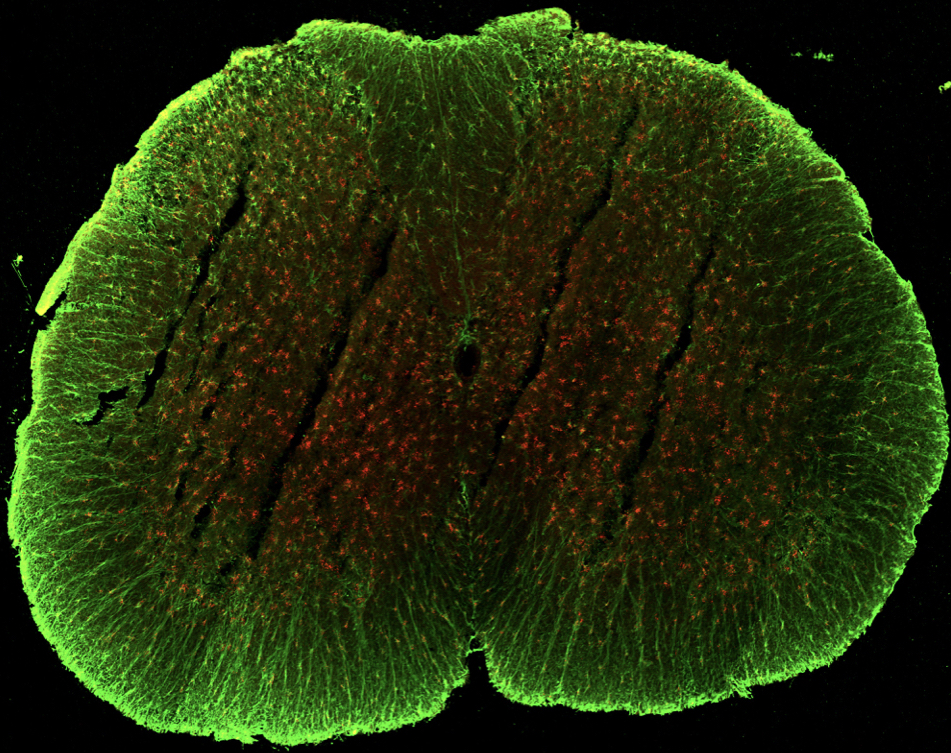Newly funded: Seeking new pathways in chronic pain treatment using a multifunctional enzyme
June 23, 2021

A team of University of Minnesota College of Veterinary Medicine researchers led by Alonso Guedes, DVM, MS, PhD, Dipl. ACVA, recently received nearly $426,000 from the National Institutes of Health to study whether signaling from the multifunctional enzyme CD38 in the spinal cord can decrease hypersensitivity associated with peripheral nerve injury and inflammation.
Chronic pain affects an estimated 20 percent of Americans, and its treatment remains an area of unmet need in both human and veterinary medicine. A correlation between opioid use for chronic pain and increased risk of addiction propels the urgency for new, non-addictive therapies.
Guedes and his team will deploy a genetic and pharmacologic strategy to validate CD38 as a target for opioid signalling in mice with neuropathic and inflammatory pain, and then log the properties and pain tolerance of metabolites generated from the enzyme. Guedes expects the research to advance the understanding of spinal opioid signaling of neuropathic and inflammatory pains, and to support the concept of CD38-based therapeutic strategies to fill the void currently occupied by insufficient, unsafe treatments. In previous research, Guedes found evidence that CD38—first identified as an immune cell marker with enzymatic properties first characterized at the University—plays a key role as part of an internal pain-monitoring system.
The current funding began in April and ends in March, 2023. The research could help usher in a new generation of analgesic therapies.


